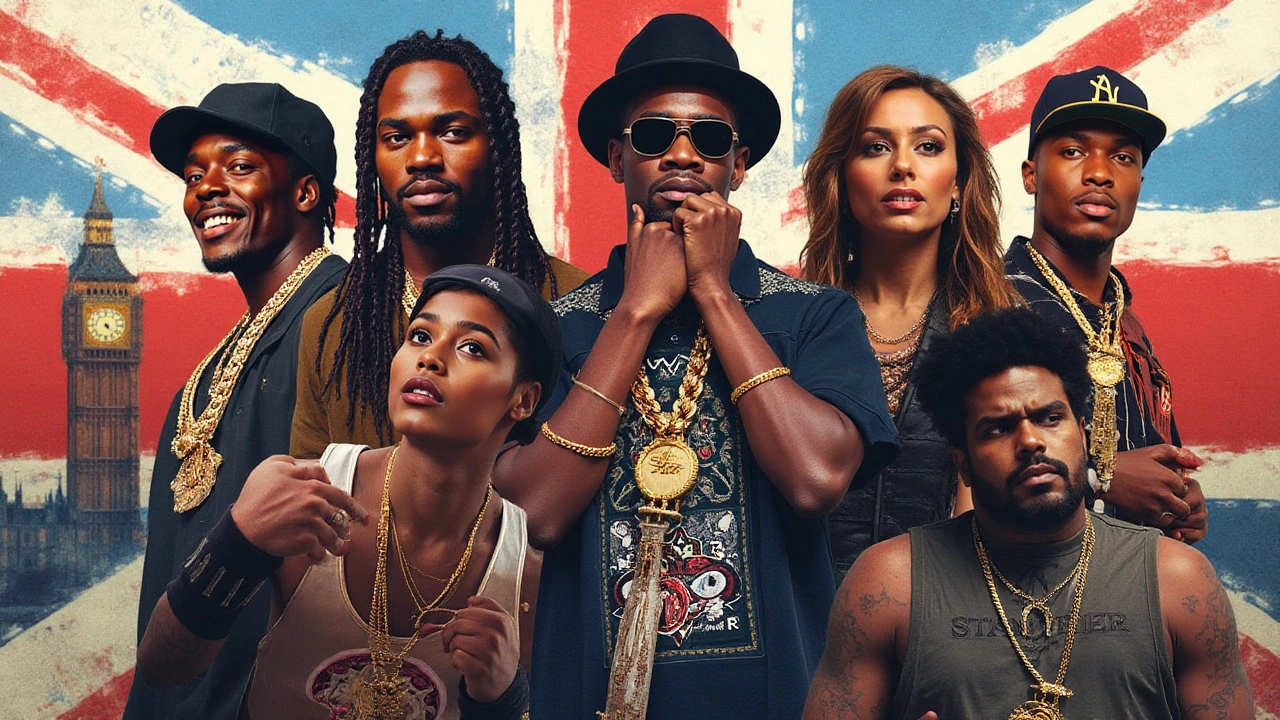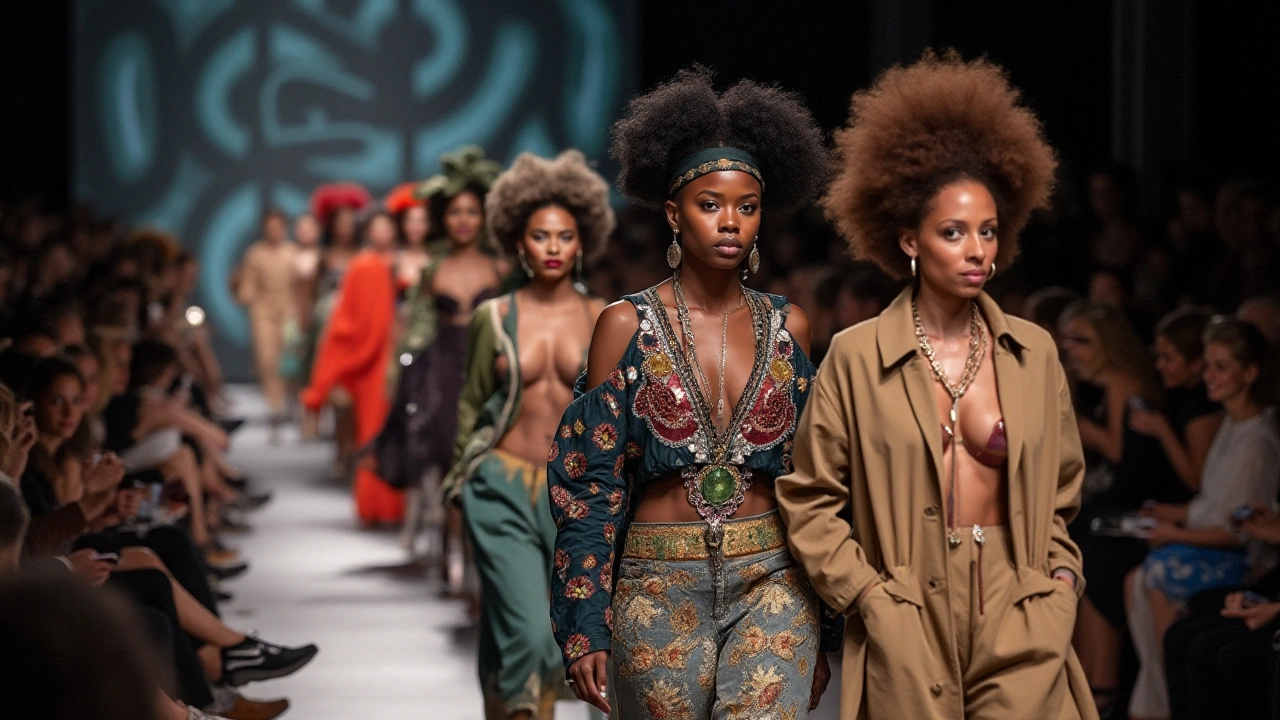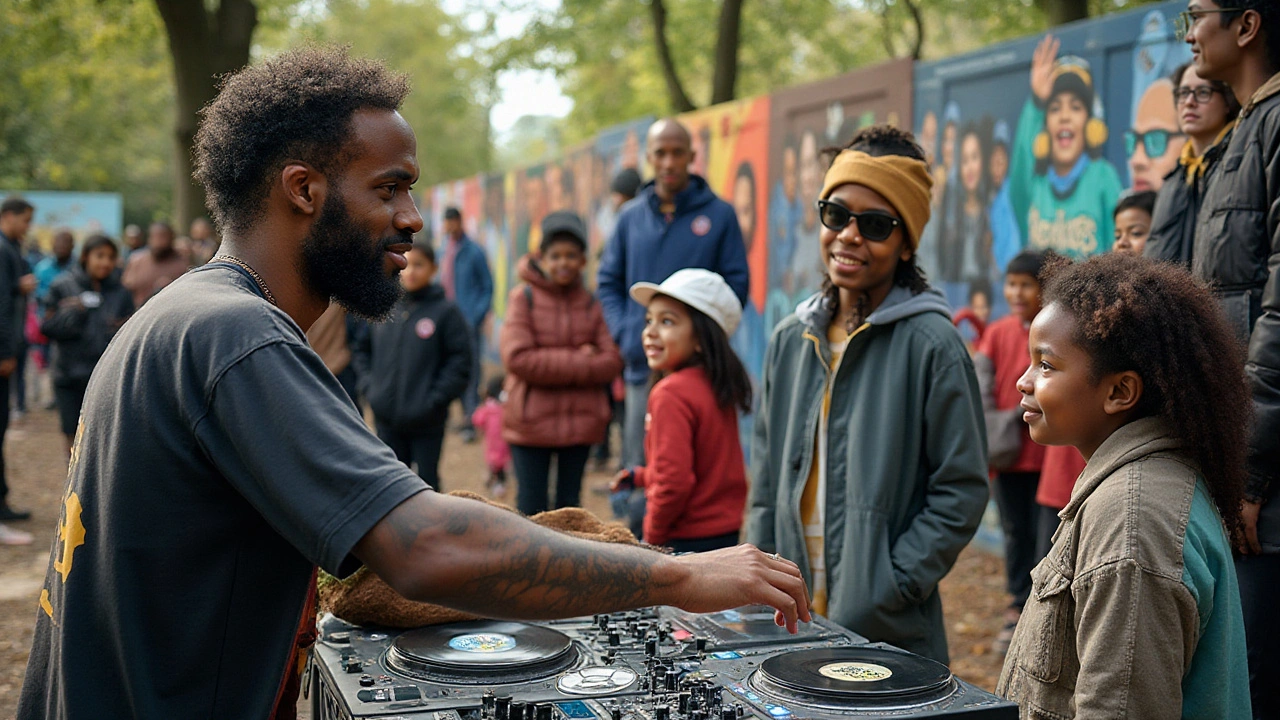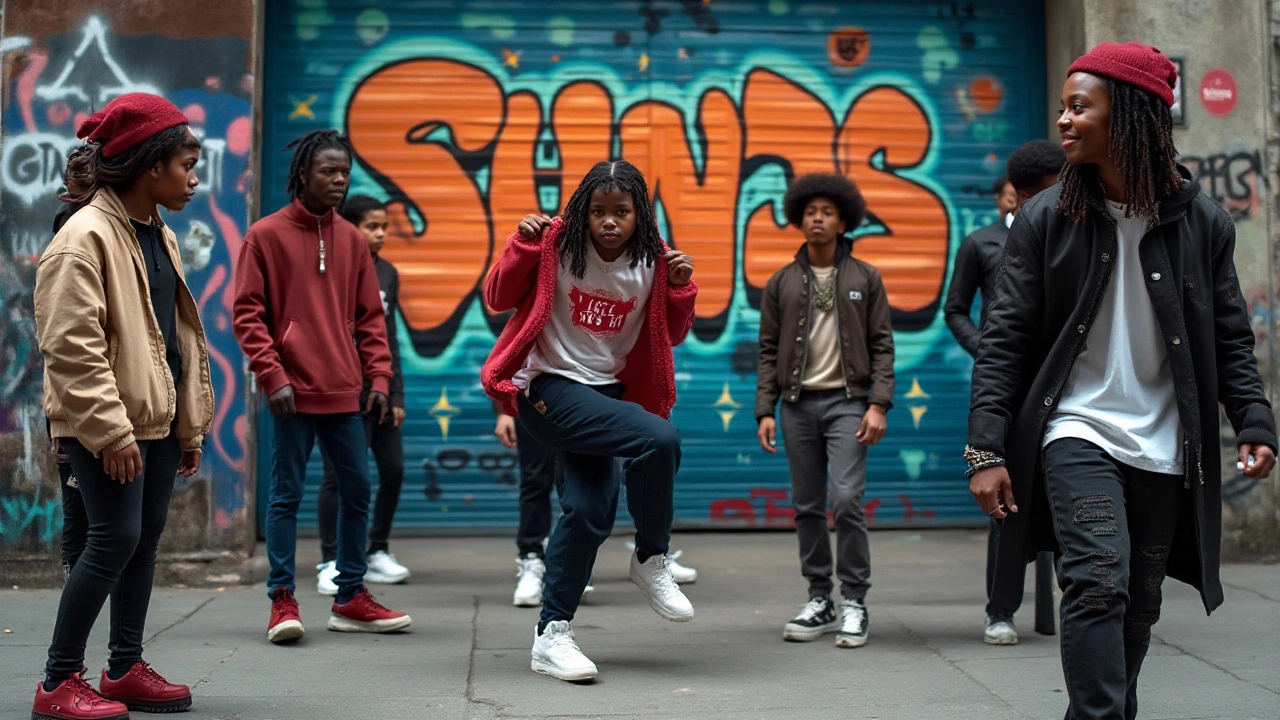Hip hop isn't just a genre; it's a movement. Having its roots in the Bronx during the late 1970s, hip hop has grown into a global phenomenon that shapes various facets of pop culture. From its raw and gritty beginnings at block parties to its dominance in today's music charts, the genre has revolutionized how we perceive music, fashion, and social issues.
The music's influence on fashion is evident, from baggy jeans in the '90s to today's luxury streetwear. Hip hop artists often set trends, with fans and high-end brands alike following suit. Clothing isn’t just about style; it's about making statements, reflecting the hustle and creativity inherent in the hip hop culture.
Language is another realm where hip hop leaves an indelible mark. Slang terms popularized by hip hop artists have woven into the fabric of everyday conversation, influencing how we communicate. Phrases like “bling” and “whassup” are now mainstream, demonstrating the genre's reach.
But it doesn't stop at fashion and language; hip hop has a significant social and political influence. It has provided a platform for addressing issues like systemic racism, police brutality, and economic disparity. Through powerful lyrics and community actions, hip hop artists bring attention to topics often overlooked by mainstream media.
Mainstream music today bears the hallmark of hip hop’s beat-driven, lyrical style. Artists across genres incorporate elements of hip hop into their work, blending boundaries and creating new musical landscapes. The genre's versatility ensures that it remains perpetually fresh and exciting.
As we look to the future, hip hop continues to evolve. Whether through innovative sounds, groundbreaking collaborations, or its ever-strong voice in social commentary, hip hop remains a potent cultural force. Its influence on pop culture is undeniable and ever-growing, reshaping the entertainment world one beat at a time.
- Roots of Hip Hop
- Fashion and Lifestyle
- Language and Slang
- Social and Political Influence
- Impact on Mainstream Music
- The Future of Hip Hop
Fashion and Lifestyle
When we think of hip hop, we can't ignore its massive impact on the fashion world. The journey started with artists like Run-DMC, who popularized Adidas sneakers and tracksuits in the 1980s. These icons made it clear that hip hop was more than just music; it was a lifestyle. Their choices weren't just about looking good but also about making a statement, combining street credibility with high fashion.
The 1990s saw a surge in hip hop fashion brands. Names like FUBU, Rocawear, and Sean John became household names, often championed by the very artists who founded or promoted them. These brands made it cool to wear baggy jeans, oversized shirts, and colorful tracksuits. The idea was to set yourself apart and make your style a form of self-expression. Hip hop fans eagerly adopted these trends, and what was once considered streetwear started showing up on runways and in high-end stores.
Today’s fashion landscape continues to be heavily influenced by hip hop. Contemporary artists like Kanye West and Rihanna have delved into the fashion world, bringing streetwear aesthetics to luxury brands. Kanye’s Yeezy line combines minimalist design with a street-savvy edge, while Rihanna’s Fenty brand emphasizes inclusivity and bold style. High-end designers like Virgil Abloh have also taken cues from the genre, blending streetwear with haute couture.
The significance of hip hop's influence on fashion is evident in how brands incorporate hip hop elements into their products. Balenciaga, Off-White, and even Louis Vuitton have integrated streetwear motifs into their collections. This cross-pollination has given rise to terms like

Language and Slang
When it comes to the impact of hip hop on society, its influence on language and slang is unparalleled. Hip hop’s creative use of words has spilled over into everyday talk, shaping how we speak, text, and even think. The genre's artists have a unique way of coining new phrases that resonate with listeners far beyond the music scene. Think about it: words and phrases like 'bling,' 'YOLO,' and 'on fleek' all have roots in the hip hop community.
Take 'bling,' for instance. Coined in the late 1990s by Lil Wayne and The B.G.'z in their song 'Bling Bling,' the term quickly became synonymous with flashy, ostentatious jewelry. What's fascinating is that this specific slang word broke out of the niche culture and found its way into mainstream conversations, advertisements, and even dictionary entries. It’s a classic example of how hip hop can turn a localized expression into a worldwide phenomenon.
The expansion of hip hop's influence on language has also been studied academically. According to research, the rapid dissemination of urban slang through music has affected vernacular speech across different communities. While it's not surprising that young people are the most susceptible to these language shifts, even older generations often pick up on commonly used phrases, especially when they are as catchy and memorable as ones found in hip hop music. This linguistic evolution is a testament to how potent and pervasive hip hop culture truly is.
One key aspect of hip hop's effect on language is its flexibility and inclusivity. Unlike more rigid forms of communication, hip hop embraces diverse slang and jargon, reflecting the multifaceted backgrounds of its artists. This dynamic mix makes the language of hip hop relatable to people from various walks of life. It’s not just about being innovative; it’s about breaking down linguistic barriers to bring people closer together.
And let's not forget how social media amplifies this impact. Platforms like Twitter, Instagram, and TikTok act as amplifiers for hip hop slang, making it easier than ever for new words or phrases to go viral. It's almost a form of digital word-of-mouth that perpetuates the spread of language in real-time. When popular influencers or celebrities adopt hip hop slang, the speed of dissemination skyrockets, further embedding these expressions into the daily lexicon.
Moreover, the storytelling nature of hip hop allows for a robust exploration of language. Through lyrics, artists reflect their realities, challenges, and triumphs in an authentic manner. This rawness resonates with fans who might be experiencing similar life situations. Kendrick Lamar, for example, masterfully uses language to convey intricate social and personal narratives. His choice of words often sparks conversation and thought, proving that hip hop is not just about catchy beats but also powerful messages.
"Hip hop is a language of rebellion, of expression, and of change. It speaks to the youth in a way no other genre can," says renowned sociolinguist John McWhorter, highlighting hip hop's role in shaping modern-day jargon.
In essence, the influence of hip hop on language and slang goes beyond mere words. It's about identity, community, and culture. It's about giving a voice to the voiceless and making sure that every syllable counts. From the streets to social media, the linguistic heritage of hip hop continues to evolve, impacting how we communicate in profound and sometimes unexpected ways. So next time you hear a catchy new phrase, remember, it might just have originated from the ever-potent world of hip hop.

Social and Political Influence
Hip hop has transcended its origins as a musical genre to become a major platform for social and political commentary. From its early days, artists used their music to highlight the harsh realities of poverty, violence, and inequality that plagued their communities. It wasn’t just entertainment; it was a form of expression for the marginalized and the voiceless.
The 1982 track “The Message” by Grandmaster Flash and the Furious Five is often cited as a turning point. The song’s stark portrayal of urban despair and systemic neglect resonated deeply. Decades later, these themes remain pertinent, making hip hop a continual barometer of social issues. Fast forward to the 90s, and groups like Public Enemy were using their platform to decry systemic racism and social injustice. Chuck D famously called hip hop the 'Black CNN,' a powerful testimony to the genre’s role in shaping public discourse.
In more recent years, artists like Kendrick Lamar, J. Cole, and Childish Gambino have carried on this tradition. Kendrick Lamar’s album “To Pimp a Butterfly” maps the complexities of African American life in America, addressing issues from police brutality to self-love. The single “Alright” became an anthem for the Black Lives Matter movement, and its chorus, “We gon’ be alright,” was chanted in protests across the nation. Such moments underscore how deeply intertwined hip hop is with current social movements.
Hip hop doesn’t shy away from political engagement either. Artists frequently comment on elections, government policies, and international issues. In 2018, rapper and activist Killer Mike delivered a fiery speech on the economic strategies of Martin Luther King Jr. and the importance of community investment. Similarly, hip hop artist Nas has often discussed the criminal justice system's failures and the urgent need for reform.
Rising hip hop talents also use their growing influence to spark change. Instead of just rapping about their neighborhoods, they invest in them. Nipsey Hussle was a notable example; he worked tirelessly to revitalize his South Los Angeles community before his untimely death. This blend of activism and artistry is not just lip service; it’s action-oriented and community-focused. Cardi B’s vocal support for various political candidates and issues exemplifies this new era of artist-activists.
Female artists are also taking the mantle, using their platforms to address issues like misogyny, domestic violence, and gender inequality. From Queen Latifah’s “U.N.I.T.Y.” to Megan Thee Stallion’s advocacy for mental health and Black women’s rights, these voices are reshaping conversations around gender and power. Their contributions highlight that hip hop is not monolithic but a diverse and evolving form of expression.
By blending artistry with activism, hip hop continues to be a significant force for social change. The genre remains a powerful tool for confronting injustices and challenging the status quo. As it evolves, hip hop's social and political influence is expected to grow even more, inspiring future generations to speak out and make their voices heard. This enduring impact underscores why hip hop is much more than music; it's a movement.

The Future of Hip Hop
As we look ahead, the future of hip hop promises to be as dynamic and influential as its past. One significant trend that continues to shape the genre is technological advancement. The rise of social media and digital platforms allows artists to connect with fans instantly and promote their music globally. Platforms like TikTok have birthed viral hits, giving new and independent artists an equal playing field with more established names. This democratization of music distribution is shifting the power dynamics, making the industry more inclusive and diverse.
Another exciting development is the blurring of genre lines. Modern hip hop artists are increasingly collaborating with musicians from various other genres, creating hybrid sounds that defy traditional categorizations. This fusion is evident in songs like Lil Nas X's

